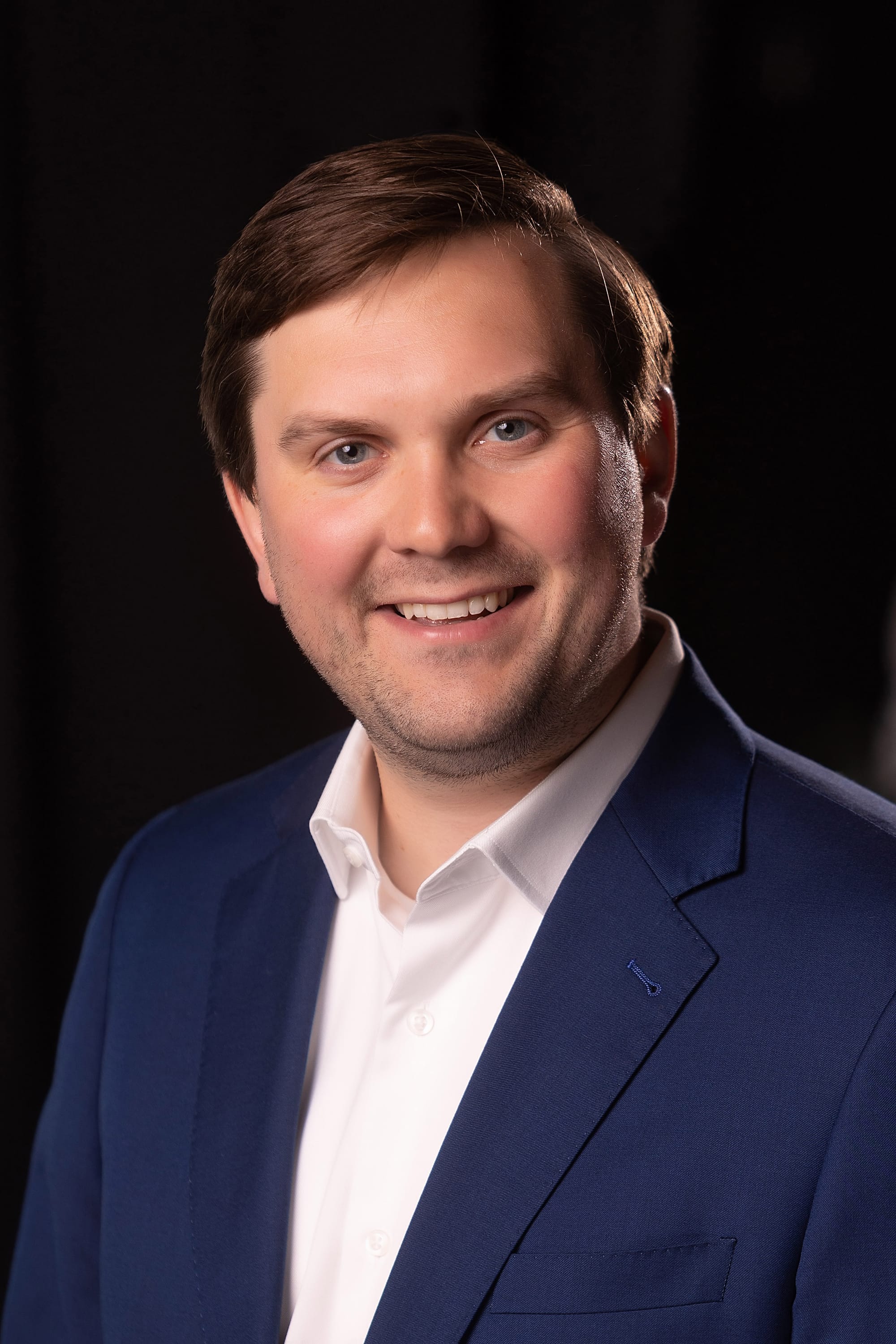Simplified: Marcus Mahlen is a commercial real estate agent with a special focus on industrial. He's also got a background in economic development, currently chairs the Harrisburg Economic Development Corporation, and he's recently started a new podcast with his wife Alexis Konstant Mahlen – who's also a commercial real estate agent (and a competitor).
Mahlen sat down with Sioux Falls Simplified to talk about what commercial real estate is, how it plays into growth and more.
Answers are edited for length and clarity. All responses are direct quotes from Mahlen.
How did you get smart about commercial real estate?
I always wanted to go into economic development ... then I went into sales, and I became a student of sales but always wanted to get back into that economic development and community building.
- Commercial real estate is an industry that's literally a marriage of sales and economic development because it combines both skillsets.
We're all about simplicity here. Can you describe your job in one sentence?
I help buyers, sellers, landlords and tenants sell, lease or buy commercial real estate.
What's something most people misunderstand about commercial real estate, and can you help us set the record straight?
There are so many types of commercial real estate – there's entire industries just within retail commercial real estate, for example.
- We break down the industry by asset class, and the main three that have existed forever are retail, office and industrial. I specifically focus on industrial real estate, whereas my wife focuses more on retail and office.
There are also other classes like apartments. We have a guy in our office that just sells hotels. Self-storage is its own asset class, and land is another big one.
How does commercial real estate play into economic development? i.e. how is the work you're doing supporting a growing Sioux Falls business community?
Business owners are busy, and we help them expand – 0r, in some cases, downsize.
We also save business owners time. Commercial real estate is very different from residential in that everyone we work with has their own needs, (and we help find spaces for the unique needs of each business.)
- An industrial company wouldn't likely need an office space, and a quick-service restaurant wouldn't need a warehouse. It's all about efficiency in the type of space needed. That's where we come in.
You also recently started a podcast, '605 Founders' with your wife – can you tell us a little bit more about your goals with that podcast?
The types of podcasts I like to listen to typically involve a founder, creator, someone who started something and a story to tell about how they started it. I’ve realized those stories motivate me, and I learn something from them.
- I already have a lot of these conversations with my clients that own businesses or friends that own businesses – why not just try to memorialize them in a podcast?
The goal is just to get these conversations out there, to meet interesting people and to allow others to maybe find lessons and do something with it.
If you could snap your fingers and a new commercial development would pop up in town, what would you like it to be?
Because I typically work in industrial-type businesses I would trend toward some sort of large manufacturing company that has a heavy focus on robotics.
- I would love to see a large new development or business with a significant amount of automation–which I think would help spur local folks to learn more about that and also increase their capabilities. That's where things are going.
Anything else you want the good people of Sioux Falls to know about you, your job, etc.?
Hire a broker.
- If you’re questioning something about commercial real estate space – should I look to expand in five years, should I plan for this, should I do that, is there something unique I can do with this excess space that I’m not receiving revenue on – you’d be surprised at how much us brokers enjoy the brainstorming side of things and the problem-solving.


